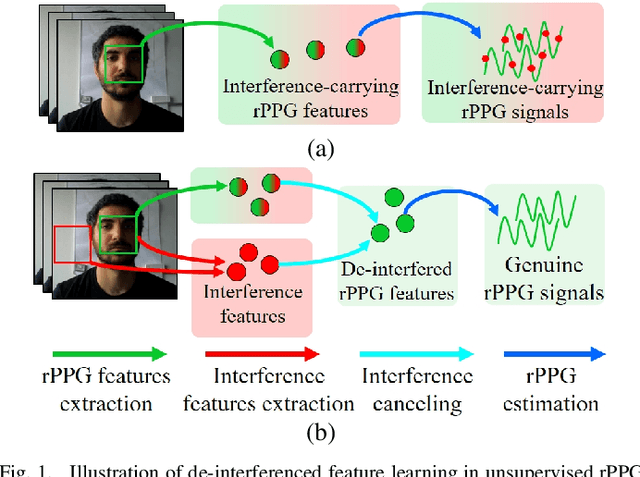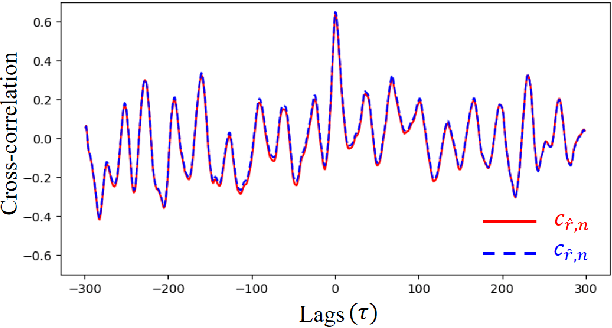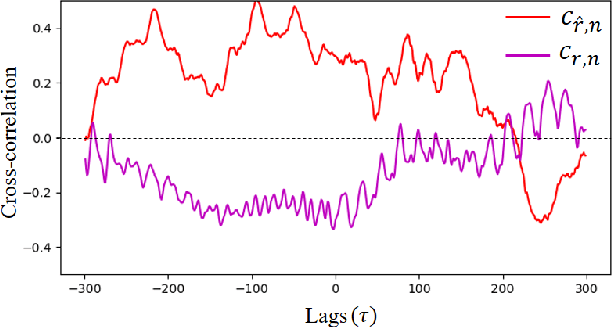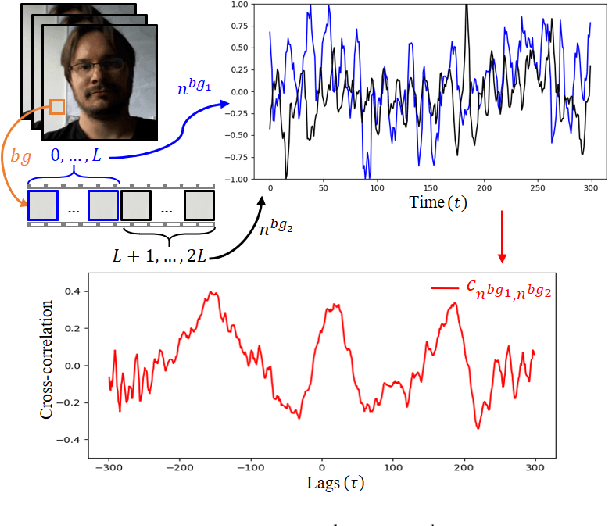DD-rPPGNet: De-interfering and Descriptive Feature Learning for Unsupervised rPPG Estimation
Paper and Code
Jul 31, 2024



Remote Photoplethysmography (rPPG) aims to measure physiological signals and Heart Rate (HR) from facial videos. Recent unsupervised rPPG estimation methods have shown promising potential in estimating rPPG signals from facial regions without relying on ground truth rPPG signals. However, these methods seem oblivious to interference existing in rPPG signals and still result in unsatisfactory performance. In this paper, we propose a novel De-interfered and Descriptive rPPG Estimation Network (DD-rPPGNet) to eliminate the interference within rPPG features for learning genuine rPPG signals. First, we investigate the characteristics of local spatial-temporal similarities of interference and design a novel unsupervised model to estimate the interference. Next, we propose an unsupervised de-interfered method to learn genuine rPPG signals with two stages. In the first stage, we estimate the initial rPPG signals by contrastive learning from both the training data and their augmented counterparts. In the second stage, we use the estimated interference features to derive de-interfered rPPG features and encourage the rPPG signals to be distinct from the interference. In addition, we propose an effective descriptive rPPG feature learning by developing a strong 3D Learnable Descriptive Convolution (3DLDC) to capture the subtle chrominance changes for enhancing rPPG estimation. Extensive experiments conducted on five rPPG benchmark datasets demonstrate that the proposed DD-rPPGNet outperforms previous unsupervised rPPG estimation methods and achieves competitive performances with state-of-the-art supervised rPPG methods.
 Add to Chrome
Add to Chrome Add to Firefox
Add to Firefox Add to Edge
Add to Edge